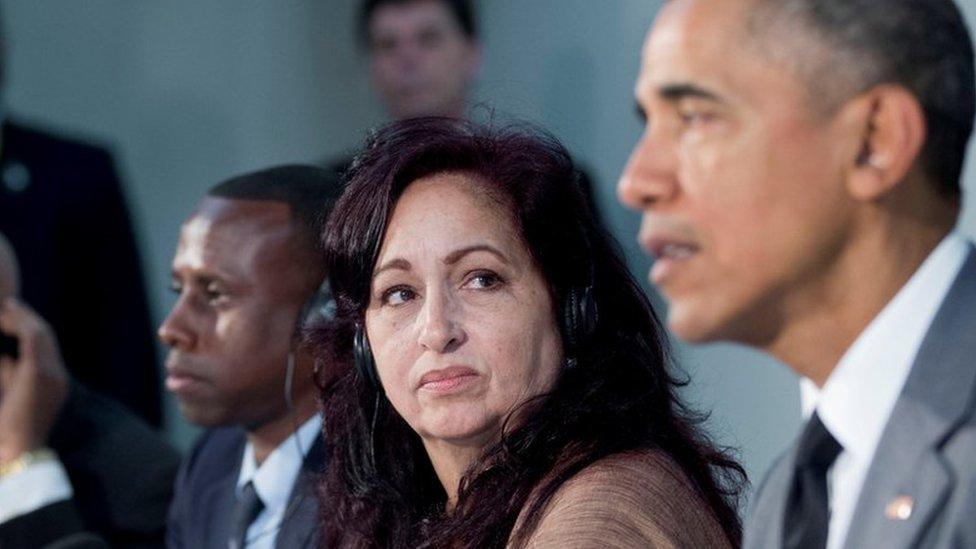US-Cuba cruise ship: Passengers on an 'emotional' crossing
- Published
On board the first US cruise ship to Havana
Almost 60 years ago, Rick Schneider was considering taking a cruise with his then boyfriend.
It was a trip that would take longer to materialise than he could have ever imagined.
"My partner and I were in Key West, 55 or 56 years ago, and he said to me 'do you want to take the ferry over to Havana?'"
"I said 'I don't know, let's do it next time'. Then, along came the revolution, and this is that next time."
As the Adonia pulled out of the Port of Miami and past South Beach, Rick held a Cuban flag aloft and his Italian husband Toni, the Stars and Stripes. He says it was a special moment.
"I wanted to show that I'm willing to wave the Cuban flag on an American ship because I think we have to make our relationships better with Cuba."
"I hear the Cuban people are wonderful, we're wonderful people - so let's get to know each other better."
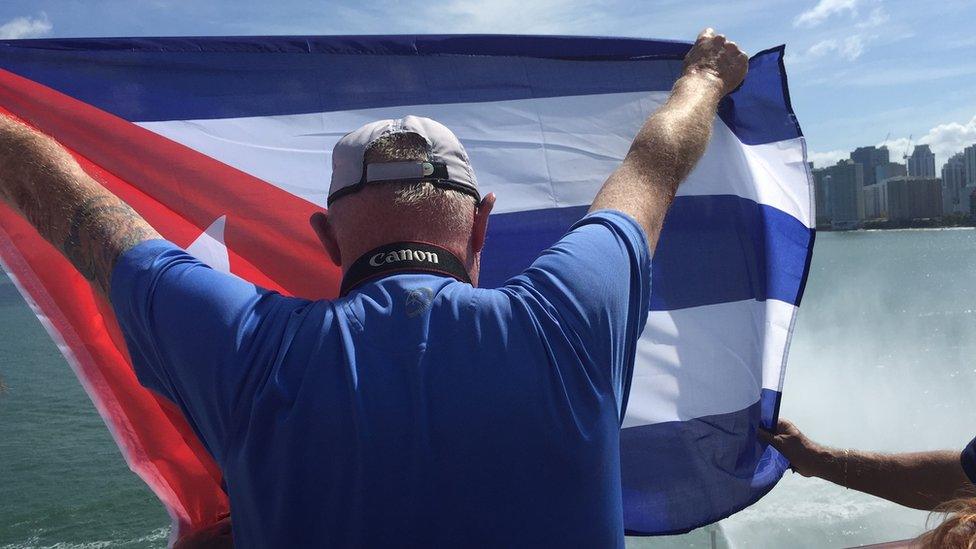
Rick Schneider is fulfilling a life-long ambition with this trip
Those are exactly the kind of sentiments the Obama administration had hoped for when it made it easier for Americans to obtain licences to visit the communist-run island.
But while the Adonia set off into the Florida Straits in near perfect sailing conditions, the political journey to reach this point has been far more stormy.
Anger at cruise company
This voyage has provoked protests and threats of legal action in Florida against the company operating the ship, Carnival Cruises.
The Cuban American community was furious that the company initially complied with a much-reviled Cuban rule banning Cuban-born nationals from entering the country by sea.
However, last month the offending measure was removed by the Cuban authorities.
The CEO of Carnival Cruises, Arnold Donald, rejects the idea that they forced the Cuban government into a corner by threatening to suspend the service.
"Not at all, that would be a mischaracterisation," he says.
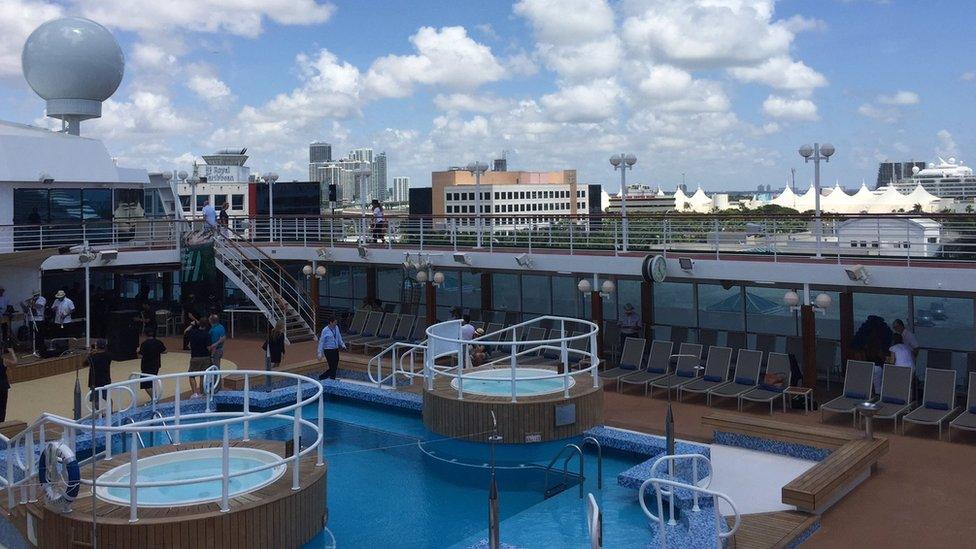
Green light for cruises to Cuba from the US was given last month
"First of all, we believed all along that they were going to allow us to bring Cuba-born people to and from Cuba."
Secondly, he said, the company was getting a lot of "positive indications to that effect".
"They had a lot of things to consider. Whether it was going to be this one ship, whether it would be the cruise industry, whether it's going to be commercial vessels."
"But there was always a positive tone," he insists.
'Nervous, happy, proud'
Either way, the change meant Cuban-American Isabel Buznego and her husband, Robert, could make their first journey back to Havana since they left the island "many years ago".
"I feel a lot of different emotions: I'm nervous, I'm happy, I feel proud, a little scared and frightened," says Isabel.
"My father always wanted to come but he never could. He died recently and I'm doing this trip for him. That's why it's so emotional."
Of course, not everyone in Florida sees the trip to Cuba in such terms.
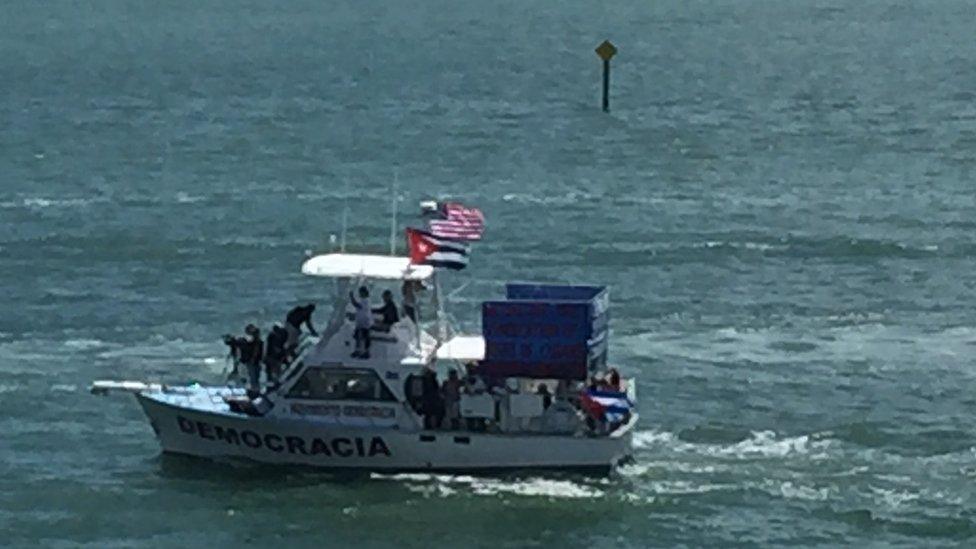
There was a small protest while the cruise ship was docked
A small boat emblazoned with anti-Castro banners and the word "democracy" in Spanish painted on its side circled the Adonia while it was still in port.
It was not a large protest, but the organisers made clear their opposition to the whole process of rapprochement with Havana.
Up on the deck, though, it did not take long for such politics to blow away in the sea breeze.
A salsa band struck up, canapes were brought round and the cocktails started flowing.
Easing into a couple of mojitos were Dan McMahon and his wife, Debbie, from Maryland.
"This was one on my very short bucket list," says Dan, who is also a cruise and tour operator.
"I've waited a very long time. I think I booked the first tickets as soon as Carnival announced them."
The couple have also made a thoughtful gesture for their visit: they brought 15 bags of children's colouring books, pencils, crayons and puzzles to distribute to children they meet.
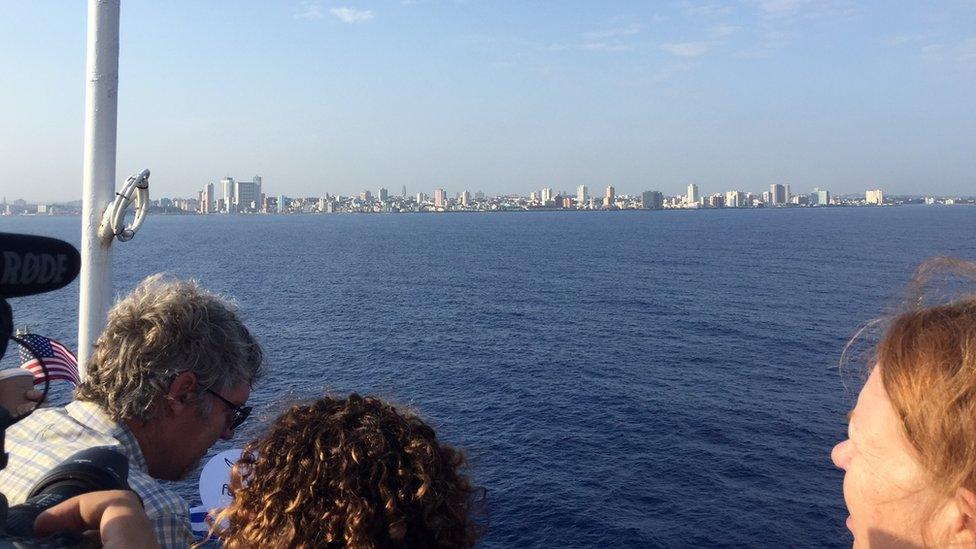
About 700 passengers were on board, in what was the first such crossing in 50 years
They are aware that infrastructure in Cuba is creaking under the strain of too many tourists but say there are a lot more Americans keen to follow their lead.
"Whatever it takes to get there, we're going!" jokes Debbie.
"But I'm just looking forward to the paladares [private restaurants], meeting local people, see the culture and the history."
On the final few hours of the journey, there was one man who was not getting much sleep.
Carnival gave the honour of being the first to step off this historic cruise to their legal adviser, Arnie Perez. A Cuban-American, he left the island as a small boy.
In a sense, his is a story that is common in his community.
But it is the method of his return, more than half a century later, which makes Arnie's voyage home so unique.
- Published3 May 2016
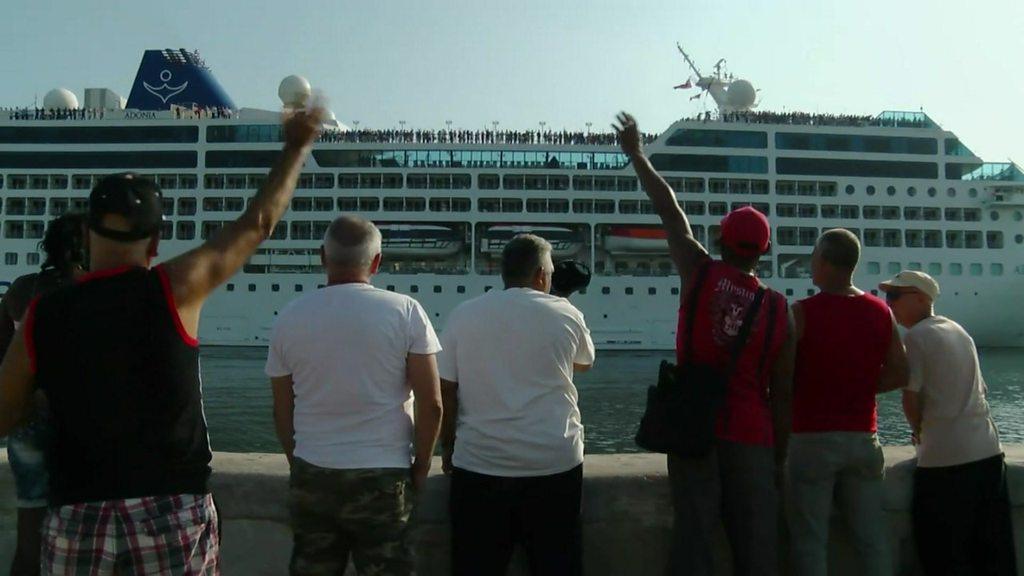
- Published2 May 2016
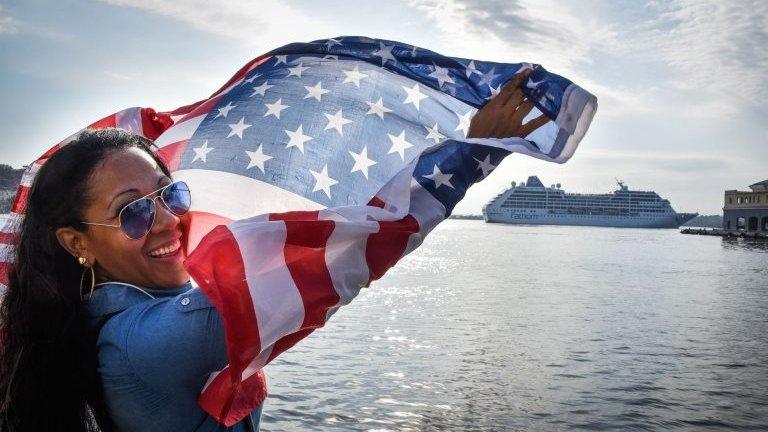
- Published22 March 2016
